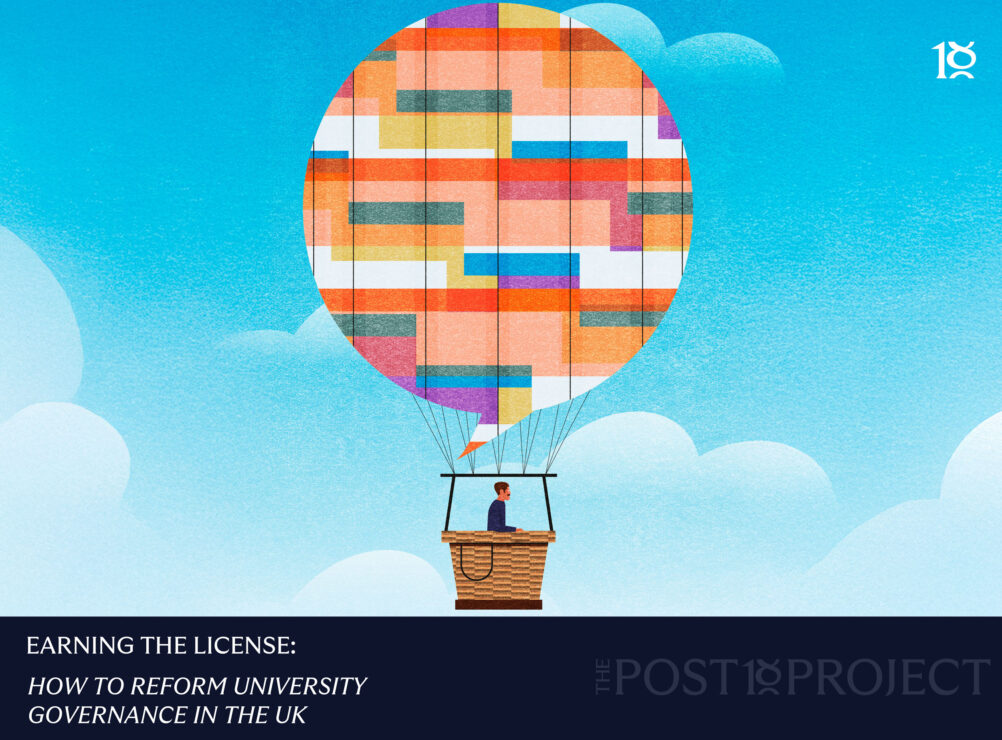As universities have begun to adopt sustainability commitments and report their progress, embedding these into the curriculum has been the hardest nut to crack.
Education is not immune to the potential for ‘greenwash’. And as universities seek to market courses as ‘sustainable’, what exactly are we selling students?
From the margins to the mainstream
Education for Sustainability (EfS) or Education for Sustainable Development (ESD) made its way onto the educational stage during the UN Decade of ESD 2005-2014.
Pockets of dynamic sustainability learning have begun to emerge, building professional capabilities in a volatile world in which uncertainty prevails. National guidance has been developed, pointing the way to this practice, and subject benchmarking groups have begun to consider the issue.
But higher education courses that infuse sustainability learning are still largely in the typical subjects we associate with sustainability – and often at the margins of learning journeys.
Interest is rising, but the mainstream education offer, for the most part, has yet to make the gearshift that would enable us to deliver at scale across the academic map.
And now we face the pressure of time. As the world wakes up to the scale of industrial and social change needed for sustainability, we need to get faster at mainstreaming this. We owe it to our graduates who will face these challenges in most, if not all, professions.
Students spotlight what matters
Large-scale studies of student opinion, from QS to SOS-UK, signal the rising demand for universities to deliver on their commitments and the increasing call for sustainability learning in all subjects.
Looking for authentic sustainability learning that is tailored to specialisms and creates skills for systemic change, students have played lead roles in an innovation project exploring what matters most – and holds true for any subject studied.
Funded by the UK Quality Assurance Agency, students at three universities worked as co-producers to expose issues and create solutions. The project – Students Driving Curriculum Quality in Sustainability – was led by the University of Gloucestershire with the University of the Arts London and King’s College London.
It started with students and staff working together to develop quality criteria that were used to stock-take progress across the portfolio at Gloucestershire. The student team used the principles to develop speed training, then enlisted over 130 students to appraise sustainability learning in their courses. This inspired their ‘anti-greenwash education kit’ to equip other students to follow their lead and ask killer questions about the sustainability learning on offer.
Focusing on the goals, but missing the point
An example of these killer questions is about joined-up learning. Good sustainability learning is complex and challenging. Crossing knowledge borders and challenging existing mental models is critical, as a path to real sustainability impact.
But faced with the complexities of embedding sustainability learning, many universities are tempted by the lure of the UN Sustainable Development Goals – 17 colourful sturdy boxes that look like they can hold some of the world’s most intricate problems. Enthusiasts are using them as doorways – which they are – they start conversations and open minds. But this popular starting point can be deceptive – and a trap. The end game of educating for sustainability – disruption that leads to innovation and system change – is easily packed away in those neat boxes. Labelling the teaching of relevant issues around the closest global goals is one step – but if that is all we do, and if that is the extent of what we measure as sustainability learning, we risk missing the point.
Whether unintentional or deliberate, lack of clarity on these points is not what students want to see. They don’t want entry-level single issue learning to be our measure – they will expect more.
The anti-greenwash education kit
The anti-greenwash education kit is built not on fanciful dreams of ‘keen green’ students whose aspirations are adrift from reality. It drew in feedback from mainstream students on diverse courses, and from the QAA board of national student advisers who advise on quality issues.
The kit sends clear messages to the sector about sustainability learning principles:
Joined up learning is a ‘red line’ issue – it has to involve systems thinking, with the environmental lens connected into the social and economic, not issues treated in silos
Compulsory not just options – options are great for focused attention on key aspects, but sustainability focus is needed in core learning outcomes that reach all students
Assessed is best – giving opportunities to anchor these new learning outcomes, move from abstract knowledge to its application, and grounded in real scenarios
The gold standard hits all levels of study – building knowledge and capability in layers, joining dots from specialist focal points to an overall change capability
Students also played back some important big picture issues, from the need to clear up terminology and communication, to spelling out the connections to justice, equity, and decolonisation agendas.
The message from students is clear
In exploring quality learning for sustainability, students showed real insight into the challenges it brings to academic teams. Interpreting this in more abstract subjects, courses with professional regulations, or where the subject bridges with industry are less well understood.
But they see danger in lack of ambition, and they don’t want complexity to slide into curriculum greenwash or efforts pitched at the lowest common denominator. They’ve got ways of boiling this down to simple essentials that can help us all cut through the confusion and take strong next steps in this journey.
We have all we need to create a powerful sustainability learning culture, complementing the inspiring research solutions already appearing. Universities committed to this know that it creates exciting learning and underlines how our sector can be a beacon to the future, not just a mirror of the present.
We owe it to students to get the nutcrackers out, promote use of a tool that encourages a good, hard look at our current offer, and get busy making quality sustainability learning happen.














All too often the alignment with enterprise and entrepreneurship is also overlooked isn’t it Alex? Above all, both need innovative minds, and innovation cannot be tested in an examination, simply because it is likely to surprise, not meet an anticipated output that is clearly defined. UK QAA Guidances make it clearer, however different terminologies can easily mask the common ground.